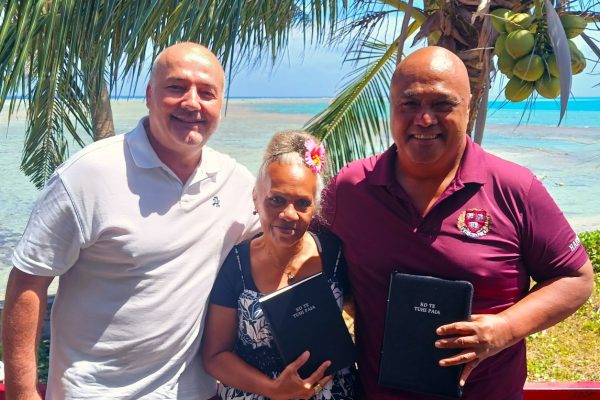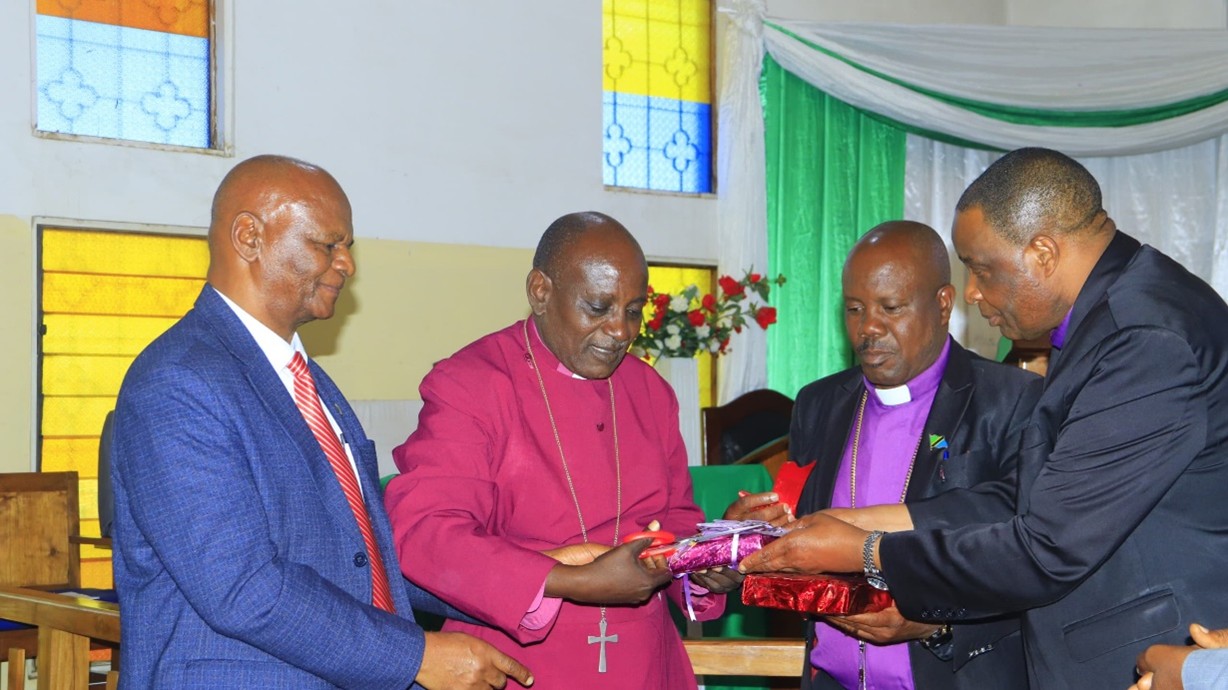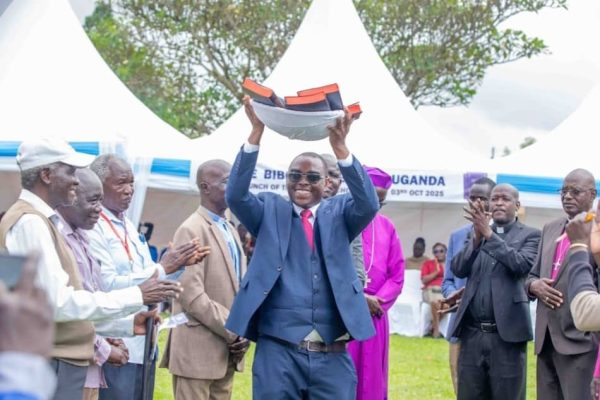
July 9, 2025
 On June 29, celebrations filled Christ the King Anglican Church in Iringa Municipality, Tanzania, as the Kihehe Bible was officially launched, marking the completion of a 30-year journey.
On June 29, celebrations filled Christ the King Anglican Church in Iringa Municipality, Tanzania, as the Kihehe Bible was officially launched, marking the completion of a 30-year journey.
Hosted by the Bible Society of Tanzania (BST) and supported by various denominations and local and international partners, the event gathered church leaders, government representatives, and hundreds from the local Hehe-speaking community.
The Kihehe Bible is the second Bible Launch in Tanzania for 2025, following the Kikagulu Bible launch in early June.
Expected Impact of the Kihehe Bible

During the launch event, members of the local Christian community, many of whom previously engaged with Scripture in Swahili, enthusiastically purchased copies of the newly translated Kihehe Bible. Approximately 810,000 people speak Hehe – primarily spoken in the Iringa Region of south-central Tanzania.
Guest of Honour at the launch event was Hon. William Vangimembe Lukuvi, Minister of State in the Prime Minister’s Office (Policy, Parliament, and Coordination), who praised BST for its outstanding work in translating the Word of God into various local languages.
“This Bible is a great gift to the Hehe community and future generations. I will treasure this Holy Word, and every day I will begin my day by reading this Bible in my mother tongue,” said Hon. Lukuvi.
BST General Secretary, Dr. Alfred Elias Kimonge, presented Hon. Lukuvi with a copy of the Kihehe Bible during the launch event (pictured).
“We thank God for this day. It is a testimony that the Word of God can reach every language and every person,” shared Dr. Kimonge.
Bishops from various denominations, government representatives, members of parliament, traditional leaders, and hundreds of citizens from across Iringa attended the launch. Some of the church leaders present included:
- Bishop Dr. Blaston Gaville (Iringa Diocese of the Evangelical Lutheran Church)
- Bishop Dr. Joseph Mgomi (Chairman of the Christian Council Tanzania Iringa Region)
- Bishop Romanus Mihali (Bishop of Iringa Diocese of the Catholic Church)
- Professor Bishop Oudenburg Mdegela (Lutheran Church)

Two editions of the Kihehe Bible are available, catering to the Hehe-speaking communities of various denominations: a Protestant version, containing 66 books, and a Deuterocanonical version, containing 72 books, used by many Catholic churches.
Three Decades of Faithful Work
Dr. Kimonge explained that the translation project began in 1994 following requests from churches in Iringa. The New Testament translation in the Hehe language was completed ten years later, in 2004, and officially launched in 2008. The Old Testament translation began the following year, in 2009, and has now launched in 2025.
BST led this work in collaboration with various local churches, language experts, reviewers, translators, and local and international partners.
As can occur within projects which span multiple decades, the translation team lost three of their colleagues throughout the project. The launch event paid tribute to the translators who returned home to the Lord before the completion of the project:
- Lambert Mtatifikolo
- Evaristo Mahimbi
- Israeli Kiponda
Translation in Tanzania

Bible translation in Tanzania remains a priority for BST with ongoing projects in languages such as Chasu, Kirombo, Kinyiha, Kinyamwezi, and Kifipa, among others. BST General Secretary, Dr Kimonge shared one such project which he is anticipating will have a profound impact:
“The Kifipa Bible would be most exciting in the future. The reason is that the speakers of the language are known to be one of the most witchcraft/occult practising tribes in Tanzania. I expect the Bible will have a far-reaching impact by reducing the occult practices.”
With several translation projects underway, Dr Kimonge has asked us to pray that financial resources would be found to ensure these projects can be completed:
“Kindly pray for adequate funding for our projects so that we can remunerate the translators well and meet other translation expenses. That would enhance the translation work and reduce the time needed to complete a translation. Our translations are taking too long and delaying the expected impact.”













